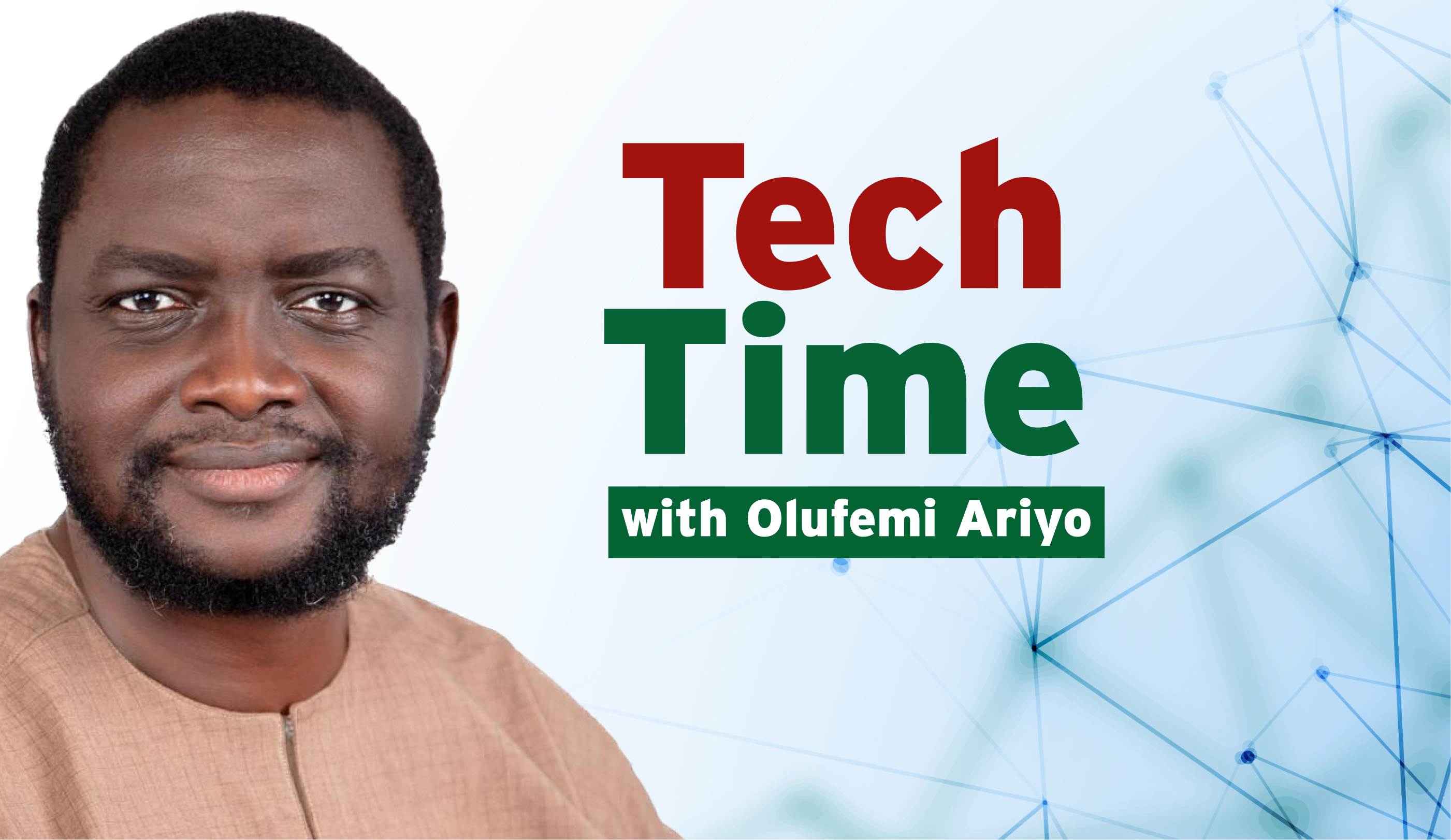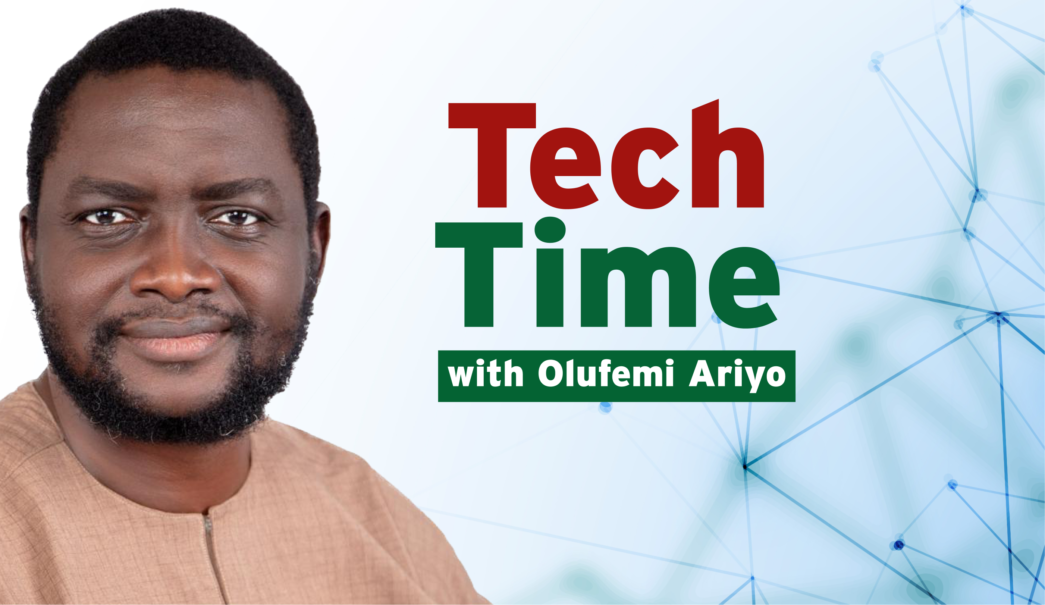In the 19th century, Africa’s wealth in raw materials was extracted in plain sight: gold, oil, cobalt and other resources were carved out and shipped abroad to fuel the industrial expansion of Europe and North America.
But in the 21st century a quieter, more insidious form of extraction is underway — one that is far less visible, yet potentially just as profound in its implications. This time, the resource is not a mineral, but data: the billions of digital traces generated every day across a continent of over 1.5 billion people. Every mobile-money payment, every search query typed into a browser, every location ping, social-media post and click in Africa feeds a global data economy dominated by corporations headquartered thousands of miles away. At the same time that internet use in key African countries is surging — Nigeria alone had over 107 million internet users as of February 2025 — most of the digital infrastructure remains externally owned. Data is collected, processed, monetised, and used to train artificial-intelligence systems that rarely reflect or benefit the regions from which the data originates.
This phenomenon has been aptly described as data colonialism: the unregulated harvesting of digital exhaust from the Global South for the benefit of others. It is not merely a mirror of old resource extraction, but a transformation of it — the new scramble for Africa is no longer about land, or mines, but about cloud-servers, algorithms and ownership of data flows. And the paradox is striking: while Africa is contributing massively to the world’s data wealth, the continent controls almost none of it. Despite rapid growth in mobile data traffic — the average monthly mobile data traffic in sub-Saharan Africa reached around 2.94 exabytes in 2024 and is projected to hit 13.32 exabytes per month by 2029 — Africa accounts for less than 1% of global data-centre capacity even as mobile data usage grows by about 40% annually. In short: the people generate the data, but the value, infrastructure and power rarely remain where the data is created.
Thus, the question is no longer simply “How can Africa use technology?” but rather “Who owns the infrastructure of digital transformation — and who benefits from it?” Digital independence is not a slogan, but a strategic imperative for a continent in which demographic potential, youth, digital inclusion and natural resource wealth converge — yet whose future remains vulnerable so long as the architecture of the digital economy is outsourced and ungoverned.
Advertisement
(A). From Connectivity to Control
Over the last decade, Africa has made extraordinary strides in digital inclusion. More people are online, startups are thriving, and governments are investing in digital economies. But as the continent integrates deeper into global technology systems, a harder truth is emerging: connectivity without sovereignty is dependency. Take for example cloud and data-centre infrastructure. Although Africa’s mobile data usage is growing fast, the continent still holds less than 1% of global data-centre capacity. This means that most of Africa’s digital infrastructure (ranging from cloud hosting to AI training and data analytics) is owned, operated or stored abroad, or in structures where control lies elsewhere.
Advertisement
Consider how even big government databases might sit on servers in foreign jurisdictions or under terms of service few public officials fully understand. If a country’s citizen records, health databases or payment-systems are managed by external providers, the state has outsourced parts of its digital destiny. And when the rules governing those systems are defined externally, governance becomes fragile. One vivid example is that the global cloud operators expanding in Africa still often rely on foreign leadership, governance models and decision-making. And while local data centres are being built — for instance, a recent report identified 211 operational data centres across Africa, but nearly half are concentrated in just four countries (South Africa, Kenya, Nigeria and Egypt) and most still link to global networks. The power to negotiate, to set the privacy rules, to design the systems that serve local needs — that is often missing.
What this means in practical terms: when algorithms trained on non-African data decide who gets a loan, job, or medical attention, then bias becomes destiny. For example, if a credit-scoring model developed in Europe or North America is applied in Lagos or Nairobi without adaptation, it may misread local behaviour, under-score good applicants, or penalise non-traditional patterns just because they don’t fit “Western” norms. That is economic vulnerability. It is also cultural and political vulnerability.
Africa’s digital destiny is, in many ways, outsourced. Connectivity alone (being online, being mobile) is not enough. If the underlying architecture is controlled externally, the benefits may accrue to others. For African citizens and governments to move from dependency to empowerment, control of infrastructure, data flows, and sovereignty must become core priorities.
Here are three concrete case-studies where this connectivity-without-sovereignty pattern is playing out — and ideally where efforts are underway to change it.
Advertisement
- Kenya — Building Local Data Centres and Infrastructure
Kenya has emerged as a regional hub for digital infrastructure, yet it also exemplifies how dependency lingers.
- In Nairobi, the company Africa Data Centres (ADC) broke ground on a major expansion of its Sameer facility: up to an extra 15 MW of IT load, bringing five times the current capacity.
- Another facility, iXAfrica Data Centres, advertises itself as “East Africa’s first & largest hyperscale, carrier-neutral, AI-ready data centre” in Kenya, with specs like 4.5 MW of IT load and renewal-powered by Kenya’s grid (~93% renewable).
- These investments show Kenya can host its own infrastructure—but ownership, governance, and the broader ecosystem still matter. For instance: many cloud and AI services are still controlled by foreign providers, and local regulatory frameworks are evolving.
- Importantly, Kenya’s government is also grappling with AI-bias and algorithmic fairness: one study noted that mobile-loan apps using behavioural and social-media data in Kenya may disadvantage women or low-income communities with less digital history.
Lesson: Kenya is making strong infrastructure moves (data centres, localisation) but the shift from hosting data locally to gaining control over how it is used remains ongoing.
- Nigeria — Policy Push Toward Data Sovereignty
Nigeria’s case highlights the regulatory and policy dimension of digital sovereignty.
Advertisement
- The country’s national IT agency (National Information Technology Development Agency, NITDA) has announced plans for a data classification system and full local data hosting by the end of 2026.
- Already, over 85% of Nigerian businesses reportedly use cloud platforms — making local data residency not just a technical question, but a strategic one.
- Observers note Nigeria is “ripe to enforce data sovereignty and local residency,” with the advance of its Data Protection Regulation (NDPR).
- But there are challenges: infrastructure costs, energy reliability, and ensuring local expertise to govern, secure and use data meaningfully.
Lesson: Nigeria demonstrates that sovereignty is as much about law and policy (who says what happens with data) as it is about cables and servers. The forthcoming policy framework indicates a movement from connectivity to control.
Advertisement
- South Africa — A Regional Leader with the Dependency Risk
As Africa’s most developed digital economy, South Africa provides a telling example of both progress and caution:
- A study found that although Africa has 211 operational data-centres, 46% of them are located in just four countries: South Africa, Kenya, Nigeria and Egypt.
- South African enterprises adopting cloud computing list data sovereignty and security among the key criteria for selecting service providers.
- At the same time, despite its relative maturity, South Africa still faces the core concern: whether digital infrastructure remains domestically controlled, and whether local data is used to benefit local citizens rather than exported value.
- For example, large global tech firms may host services in South Africa, but if control, data governance, and value-leakage are not localised, then the dependency remains.
Lesson: South Africa underscores that being a hub does not automatically mean being sovereign. True sovereignty requires local ownership of stack, governance, and economic benefit.
Advertisement
Summary & Reflection
Advertisement
- Connectivity alone is no guarantee of control. Having data centres or internet access is important, but if the infrastructure is controlled externally, sovereignty remains elusive.
- Infrastructure + policy = agency. Kenya’s build-out, Nigeria’s regulatory push, and South Africa’s criteria all show that both physical and institutional layers matter.
- Bias, value-leakage and governance are real risks. Whether in credit-scoring algorithms in Kenya or cloud reliance in South Africa, true control means shaping the rules and benefits, not just the pipes.
- The path forward: Encourage domestic cloud/data-hosting, enforce data-residency/regulation, build local talent, and design models that ensure value stays on the continent.
(B). Why Tech Sovereignty Matters Now
Artificial-intelligence systems are only as good as the data they consume. In Africa, this truth is critical: if African data continues to flow unchecked into foreign hands, the next generation of global AI (the systems that will drive health care, agriculture, education, governance, and commerce) will effectively be built on Africa’s back, but not for Africa’s benefit. Take the continent-wide push for AI and data governance. At the Pan‑African Parliament in July 2025, legislators emphasised that Africa must build “a secure, inclusive, sovereign digital and AI future” aligned with African Union’s Agenda 2063. They warned that Africa risks becoming a “digital colony” unless it takes ownership of its data and AI.
A practical concern is that many foreign AI systems rely on datasets that under-represent African languages, cultures or conditions. A recent review noted that across many African countries, data protection frameworks are weak (even though about 36 out of 54 African countries now have formal data protection laws) — and AI governance is often missing. Without data and algorithmic sovereignty, African nations may find their residents subject to decisions made by systems trained and operated elsewhere.
For example, in health care, a recent federated-learning pilot across eight African countries (for tuberculosis chest-image diagnosis) showed the promise of AI trained using locally retained data — but also the obstacles: infrastructure, connectivity, regulation and data-control were all major hurdles. If the raw patient data had simply been exported, the local context would have been lost and communities might not benefit equally.
Tech sovereignty is not about isolation or rejecting global collaboration. It is about agency — the right to decide how data is used, where it is stored, and who profits from it. Think of it this way: if your country’s data is sent abroad, processed there, and the insights sold back to you, you are the supplier of raw material and someone else is the refinery. That’s dependency.
By contrast, when AI models are trained on African voices, dialects, behaviours, ecosystems (and under African governance) Africans become partners in the value chain, not raw material. Consider Rwanda’s approach: its AI strategy prioritises data sovereignty and targets rural healthcare and food-security applications rather than simply importing “finished” solutions. In Ghana, too, researchers are creating hybrid AI algorithms rooted in local realities — showing that innovation can originate domestically when data and context are controlled locally.
The implications run deep:
- Economic: Data, compute and AI services are becoming valuable exports. If African nations control them, they can capture economic value rather than just provide raw inputs.
- Political / Governance: If decisions (loans, jobs, health care) are driven by algorithms built elsewhere, local values, norms and vulnerabilities may be ignored. South Africa’s call for “algorithmic sovereignty” emphasises this.
- Cultural / Social: AI systems shape how people are seen, how knowledge is represented, and how communities are served. If the data and models exclude African languages or realities, representation becomes skewed — one Reddit commenter noted that many AI systems mis-represent African life because “the majority of input is by foreigners.”
Finally, this is a moment of urgency. With the global AI boom accelerating, the infrastructures (cloud, data centres, governance frameworks) that support AI will define who leads in the digital economy. If Africa remains outside this build-out, it risks being forever downstream: reliant, reactive, and undervalued.
Owning the Cloud, Owning the Future
If data is the new oil, then cloud infrastructure is the refinery. Without local cloud capacity, Africa runs the risk of remaining a digital exporter of raw data and an importer of expensive insights — the value is extracted elsewhere, and the continent’s role is reduced to feedstock.
Consider the recent policy development in Kenya: on 2 May 2025 the government’s new Kenya Cloud Policy, 2025 officially came into force. The policy mandates data-localisation based on classification: “Top Secret” or “Secret” government data must be hosted in dedicated Kenyan government-cloud infrastructure; “Restricted” data in approved Kenyan public cloud infrastructure; and “Open” data in Government cloud for transparency and access. It also requires public entities to prioritise local cloud-based solutions and favour Kenyan-based cloud providers when procuring ICT infrastructure. This is not just about being online. It is a move toward control of the stack: infrastructure, governance, and data.
Similarly, in the infrastructure/market side, the expansion of data centres across Africa is accelerating. For example, the market for data-centre construction in Africa is projected to nearly triple by 2030. And in South Africa, data-centre capacity is among the largest on the continent: one report noted that South Africa has 22 hyperscale cloud-provider facilities with around 190 MW of IT load. A concrete story: Africa Data Centres (ADC) broke ground on a major expansion in Nairobi in January 2023, adding up to 15 MW of IT load capacity to its facility adjacent to the Sameer site, with a build-out that will bring “five times more capacity than currently installed.”
What do these moves signify? They show that African countries and companies are starting to build the refinery of the digital economy — hosting data locally, creating capacity for cloud and AI workloads, reducing latency, cost, and dependence on foreign infrastructure. But the challenge is bigger than a few data centres or cloud-policies.
Why This Matters
- Value Capture
When data is hosted abroad, the insights, AI models, and decision-algorithms are often controlled by external entities. By owning the cloud and local infrastructure, African nations can begin to capture more of the economic value chain — from data generation to insight, from processing to monetisation.
For example, the investment by the International Finance Corporation (IFC) – part of the World Bank Group – of US $100 million in the African data-centre developer Raxio Group (which is building centres in Ethiopia, Angola, DR Congo, Mozambique and Ivory Coast) is a signal: Africa needs its own infrastructure to host, process and manage its data. - Sovereignty & Governance
If data and compute are controlled externally, national governance suffers. Where are the oversight mechanisms? What laws apply? Who resolves disputes? The Kenya Cloud Policy explicitly addresses such issues: public entities must use cloud services that comply with Kenyan data sovereignty laws and standards; if third-party providers are used, they must be approved and transparent.
A government hosting its citizen data in foreign-jurisdiction servers may have limited control over how that data is used, shared, or monetised. Local cloud infrastructure strengthens policy autonomy. - Contextualised Innovation
Cloud and data-centres enable local AI, local platforms, local innovation. For Africa to innovate — in agriculture, health, language technologies — the compute and data must be proximate, affordable, and tailored.
In Kenya, the expanded data-centre capacity via ADC in Nairobi is sold as recognition of East Africa’s digital rise. Without local infrastructure, latency, cost and dependence make building next-gen services harder. - Reduced Cost & Latency
Local hosting reduces the cost of data egress, international transit, foreign currency exposure, and improves performance. For startups and SMEs, this makes the difference between viable products and high overheads. - Resilience and Security
Infrastructure within the continent is more resilient to external shocks (e.g., international cable damage, regulatory blocks) and gives governments a better handle on cybersecurity and data protection.
(C). The Continental Scale Challenge – and Vision
While national policies and data-centres are progressing, the scale of the challenge is continental. A single country cannot realise full tech-sovereignty in isolation. The vision many propose is a Pan-African Cloud Alliance: under the umbrella of the African Union (AU) and African Continental Free Trade Area (AfCFTA), regional data-centres, cloud-networks, and data-governance frameworks could interlink.
Imagine:
- Regional data-centres in East Africa (Kenya, Rwanda, Uganda), West Africa (Ghana, Nigeria, Côte d’Ivoire), Southern Africa (South Africa, Namibia, Botswana) and North Africa (Egypt, Morocco, Tunisia).
- These centres governed under African privacy/compliance laws and inter-operable standards.
- Cloud service models built by African engineers, supported by local capital, servicing African-language AI models, local startups, and government systems.
- Procurement, licensing and policy frameworks that favour home-grown platforms, open-standards (to avoid vendor lock-in), and public-good digital infrastructure.
- Collaboration across borders: national regulators, cloud providers, startups, universities working together rather than each country reinventing the wheel.
This is not stray speculation. The Kenya Cloud Policy, for instance, includes interoperability requirements to ensure compatibility across digital systems and avoid vendor lock-in. That is the seed of the federation model.
Yet one statistic stands out, as said earlier, Africa currently holds less than 1% of global data-centre capacity, even as mobile-data usage on the continent grows at around 40% annually. This shows the gap between ambition and reality.
Stories of Progress
- In Kenya, the partnership between government and the private sector has facilitated a new cloud-hosting agreement: On 13 October 2025, the State Department for Irrigation signed a contract with Konza Technopolis’s cloud infrastructure to host the National Irrigation Sector Investment Plan’s MIS system. That shows government systems moving into local cloud, driving efficiencies and real-time data flows for farmers across 47 counties.
- In South Africa, the data-centre investment story: ADC secured about US $108.9 million in funding to expand its capacity and support the digital transformation journeys of its customers. Another data-centre market report noted that the African data-centre market is expected to grow with a CAGR of 15 % between 2020 and 2026.
The Stakes for Africa’s Future
In short, if African nations build local cloud infrastructure, they build the foundation for sovereign, inclusive, and innovation-driven digital futures. If they don’t, they may become perpetual tenants of external platforms — beholden to rules, costs and latency set somewhere else.
Owning the cloud means owning the stack: where data is stored, how it is processed, who builds the services, and who captures the value. That is how Africa moves from connectivity to control, from importing insights to producing them, from users to creators.
(D). Open Data as a National Resource
Just as countries maintain central banks, currency reserves and mineral resources for public benefit, so too must they now think of data as a form of national capital — a digital asset that, when managed intentionally, can fuel innovation, public value and economic growth. If data is the new oil, open data is the refinery feedstock: when made accessible under the right conditions, it allows entrepreneurs, civil society, researchers and governments to extract value, craft insights and build services.
However, “open” does not mean “unprotected.” It means strategically shared, governed by ethics, security, and national interest. The data must be anonymised where required, privacy preserved, rights upheld, and usage aligned with public good. Without those protections, open data can turn into open risk.
When a state treats its data as responsibly as it treats its minerals — ensuring transparency, value capture and downstream investment — then the shift from “consumer” to “creator” in the digital economy becomes real.
African Examples: When Open Data Works
Here are a few concrete implementations that illustrate how open data has been used on the continent:
- In Kenya, the government launched one of Africa’s first national open-data portals, the Kenya Open Data Initiative, in July 2011. It provided access to national census, school, clinic and infrastructure information. One early outcome: a mobile application used this dataset to help farmers understand livestock vulnerability in arid areas.
- In Ghana, the Ghana Open Data Initiative was launched to make government data accessible for developers and the public.
- Platforms such as openAFRICA (run by Code for Africa) aggregate thousands of African datasets — giving civil society, researchers and entrepreneurs access to previously hidden data.
- According to the African Development Bank, typical open-data innovation in Africa has emerged when datasets on health, agriculture, geospatial mapping and government spending are made available — enabling startups, civic tech and research.
- Case in point: In Kenya, after the open data portal launch, developers used national exam results and school performance data to build an app (Eneza Education) helping students prepare for tests.
These examples show that open data can be a catalyst — not an end in itself — enabling entrepreneurship, transparency, and innovation.
Why Open Data Matters for National Development
- Entrepreneurial opportunity: When datasets on agriculture yields, weather, infrastructure, education and demographics are made accessible, innovators can build services (e.g., precision-agriculture apps, health-monitoring platforms, fintech models) at low cost.
- Transparency & accountability: Open government data helps citizens and civil society monitor public spending, infrastructure delivery and governance. For example, datasets on budgets and contracts empower advocacy groups.
- Public service improvement: Governments can reuse these open datasets to improve planning — e.g., mapping clinics, tracking schools, optimising resources. Kenya’s portal included data on schools and clinics that changed how citizens accessed services.
- Value creation and retention: Instead of being just passive data producers, African countries can support local data ecosystems — analytics firms, startups, civic tech — thereby capturing more value domestically.
- Language, culture & inclusion: Open data allows localisation — for example in building AI or language-tech models reflecting African languages, dialects and contexts (see projects like MASAKHANE).
Guardrails and Risks: What Open Data Must Do
But open data without governance can fail to deliver or even harm. Some key requirements:
- Anonymisation & privacy protection: Sensitive personal or health data must be protected. Open data is not a license to violate rights.
- Strategic release, not chaotic leak: Data should be released with consideration of national interest — formats, standards, metadata and accessibility matter.
- Capacity building: Having datasets is one thing; having people who can use them is another. Governments must invest in data-literacy, analytics, and tools so that local actors can benefit.
- Sustainability: Portals must be maintained, updated, and governed. Many open-data initiatives stall because datasets become outdated, portals lack support or demand is absent.
- Equitable access: Data must be accessible to small businesses, researchers, rural innovators — not just large corporations.
- Value capture and feedback loops: If open data is released but insights are monetised externally with no benefit returning locally, then the nation still loses. A national data strategy should aim for domestic reuse.
- Inter-operability & standardisation: Data sets across ministries, levels of government and sectors must use common standards so developers can build on them. The African Union’s Data Policy Framework highlights this.
(E). Towards a Data-Driven Future for Africa
Imagine a scenario in which a West African startup builds an AI-powered app for small-holder farmers using open datasets on soil quality, rainfall, local markets and transport infrastructure from national data portals. Because the data is open, they innovate quickly; because it is local, the solutions reflect local conditions; and because capacity and policy support exists, the value stays in the region.
Contrast that with a scenario where the data never leaves internal government systems, the startup must pay a foreign firm for access or relies on expensive proprietary global datasets — the innovation is slower, costlier, and the benefits leak abroad.
If African governments treat data as they do natural resources — recognising it as national capital, investing in its infrastructure, and enabling open access under strong governance — then the continent can shift from being a consumer of digital services to a creator of them.
In other words: Open data is not just about transparency or access. It is about empowerment — of citizens, of entrepreneurs, of societies. By releasing, governing and leveraging data intelligently, Africa can build its digital future on its own terms.
Lessons from the World
Africa is not the first region to grapple with digital dependence.
India: Digital Public Infrastructure (DPI) as Sovereignty-in-Action
6
India provides one of the clearest recent examples of a large-scale digital infrastructure built domestically with sovereignty, reuse and scale in mind.
- The triad of its “India Stack” or Digital Public Infrastructure (DPI) consists of: identity (Aadhaar), payments (Unified Payments Interface or UPI), and data/document-sharing (DigiLocker among others).
- Aadhaar has over 1.3 billion users.
- UPI processes more than 10 billion transactions per month (in or around 2025).
- Crucially, these systems are based on open standards, interoperable layers, and stay largely under Indian governance — meaning India controls how identity, funds flow and data sharing are structured.
Why this matters for Africa:
- The India model shows that large populations + digital infrastructure = scale and national value.
- It demonstrates how digital sovereignty need not mean isolation — India remains globally connected, but retains domestic control.
- For Africa, it suggests that building local digital public goods (ID systems, payments rails, data frameworks) is possible — and not just about tech adoption but about ownership.
- It also warns: The system must be built with strong governance, privacy safeguards, and a view toward inclusion. India still faces debates over data privacy, surveillance and consent.
China: Parallel Digital Ecosystem & Platform Sovereignty
6
China offers a contrasting lesson: a model of digital sovereignty framed around control and scale.
- China has over 1.1 billion internet users as of January 2025, with internet penetration at about 78%.
- The so-called Great Firewall is not simply a censorship tool; it created domestic conditions for native platforms (Alibaba, Tencent, Baidu etc) to flourish with less foreign competition.
- China’s strategy emphasises building its own infrastructure: cloud, AI, chips, data centres — all part of a national push to reduce reliance on foreign tech and platforms.
What to take from it:
- This is sovereignty via platform plus infrastructure plus regulation. Africa might not adopt the same heavy control model, but the clear point is: if you leave your stack to others, you cede value and power.
- On the flip side, the China model shows risks: closed ecosystems, heavy regulation, potential stifling of openness and global integration. So while parts are instructive, not all should be replicated without adaptation.
European Union: Regulation, Data Rights & Digital Sovereignty
6
The Data Act (European Union) is an example of how a high-income region seeks digital sovereignty via law and rights, not necessarily by blocking connectivity.
- The Data Act entered into force 11 January 2024, and becomes applicable 12 September 2025.
- Its aims: empower users and businesses to access and share data they generate (especially via IoT/connected devices), regulate contractual imbalances, boost fairness in the data economy, facilitate portability and interoperability of data, and restrict misuse of data.
- For example: businesses must allow switching between cloud/data-services, individuals have more control over data generated from “smart” products.
Key lessons for Africa:
- Sovereignty is not only about owning hardware or infrastructure — it’s about governing data flows, rights and contracts.
- Even without building a national firewall or sweeping infrastructure, the EU model shows you can shape the rules of the digital economy so that value, rights and data-flows are aligned with national/public interest.
- For Africa, combining infrastructure + regulation + openness may be the sweet spot.
What Africa Can Blend From These Models
- From India: Build digital public infrastructure (ID, payments, data-sharing platforms) domestically, with open standards, at scale.
- From China: Recognise the strategic value of infrastructure, platforms and native ecosystems — but balance sovereignty with openness and innovation.
- From the EU: Legislate thoughtfully — protect rights, ensure data portability, avoid vendor lock-in, and ensure value flows back to communities.
A Federated, Ethical, Inclusive Digital Ecosystem for Africa
The aim is not isolation, not digital protectionism, but agency. Africa need not block foreign platforms entirely, but it must ensure that it participates, governs, and benefits. A federated African digital ecosystem might include:
- Shared standards across African countries so that data, AI, and infrastructure are interoperable, not fragmented.
- African-language, African-context AI models built on African datasets, hosted in African data-centres, owned / governed locally.
- Regulatory frameworks at regional (e.g., African Union) level for cross-border data flows, digital rights, cloud-provider accountability.
- Public digital infrastructure (IDs, payments, public-service APIs) to reduce dependence on foreign platforms and ensure citizens are served first.
- Collaboration among governments, startups, civil society and academia — to ensure innovation is locally driven, not just imported.
In Summary
These global cases show:
- Sovereignty in the digital age is not about building walls (though that’s one extreme) but about building capacity, norms and rights.
- Ownership of infrastructure (India, China) and ownership of governance/regulation (EU) both matter.
- Africa has the chance to leap — not replicate exactly, but innovate a hybrid model well-suited to its youth, languages, ecosystems and ambitions.
(F). Blueprint for African Digital Sovereignty
- Build Continental Cloud Infrastructure
If data is the new oil, the cloud is the refinery. Without local cloud capacity, Africa will remain a digital exporter of raw data and an importer of insights. The African Union and AfCFTA have a unique opportunity to coordinate investment in regional data centres — hubs that can serve multiple countries while remaining under African governance.
For example, Rwanda’s Kigali Innovation City is already positioning itself as a regional tech hub, with plans for cloud infrastructure that could serve East Africa. Similarly, Nigeria’s MainOne and Rack Centre are privately owned data centres, but the potential exists to expand under a public-private model coordinated at a continental level. Imagine a network of African-run data centres with AI servers trained on African languages, dialects, and regional contexts — this would ensure that data generated locally benefits local economies instead of flowing entirely to Silicon Valley or Beijing.
- Establish a Pan-African Data Charter
Digital sovereignty is meaningless without clear rules. A Pan-African Data Charter would harmonise privacy, protection, and usage laws across the continent, ensuring that personal and commercial data is handled consistently regardless of borders.
South Africa’s Protection of Personal Information Act (POPIA) and Nigeria’s Data Protection Act (2023) provide early models, but fragmentation remains a challenge. A harmonized charter could, for instance, prevent a fintech startup in Ghana from being forced to comply with conflicting regulations when expanding to Kenya, while simultaneously protecting citizen privacy. Think of it as a digital constitution for data, ensuring both safety and opportunity.
- Create Open Digital Commons
Open data is Africa’s opportunity to become a creator, not just a consumer of AI. Governments and institutions can release anonymised datasets — from agricultural yields to health statistics — to fuel innovation, as long as ethics and national interest are safeguarded.
Take the case of FarmCrowdy in Nigeria, a digital agriculture platform: when farmers’ crop data and production statistics are pooled into anonymised datasets, startups can build AI models that predict yields, optimise logistics, and reduce waste. Similarly, open-source AI models trained on African languages — like Hausa, Swahili, or Zulu — could enable voice assistants, educational tools, and health chatbots that truly understand local contexts. Africa has rich diversity; open digital commons allow this richness to be reflected in technology.
- Develop Digital Public Infrastructure (DPI)
India’s success with Aadhaar, UPI, and DigiLocker shows the power of creating open, interoperable standards for identity, payments, and civic data. Africa can replicate this approach, designing systems that are locally owned, interoperable, and inclusive.
For instance, imagine a Pan-African digital identity system that allows citizens to securely access bank accounts, health records, education credentials, and government services across borders. Such a system could empower millions of informal workers, smallholder farmers, and urban youth who currently lack formal identity verification. This is not just digital convenience — it is economic empowerment.
- Invest in Human Capital
Sovereignty is meaningless without people who can run, maintain, and innovate within these systems. Across Africa, there is a growing but insufficient pool of AI researchers, data scientists, engineers, and ethicists.
Ethiopia’s AI Research Institute, Kenya’s iHub, and South Africa’s AI & Robotics Centre at the CSIR are promising examples, but capacity-building must scale across the continent. Scholarships, fellowships, and African-led R&D in AI can ensure that the next generation of African coders and ethicists are designing systems with African priorities in mind — from bias-free credit scoring to locally relevant healthcare diagnostics.
Stories illustrate this potential: Zindi, an African startup platform for data science competitions, has empowered thousands of African AI enthusiasts to solve local problems, from predicting malaria outbreaks in Tanzania to optimising urban traffic in Accra. Investing in people turns digital sovereignty from a policy aspiration into practical, day-to-day reality.
In summary, Africa’s digital sovereignty blueprint is ambitious, but achievable. By combining infrastructure, regulation, open data, public systems, and human capital, the continent can transition from being a data supplier for foreign AI to a driver of African innovation. Each component reinforces the others: cloud infrastructure stores and processes data locally, a Pan-African charter protects it, open digital commons fuel innovation, DPI ensures accessibility and interoperability, and skilled professionals make it sustainable.
The story is clear: Africa does not have to wait for global giants to shape its digital destiny. It can build its own, rooted in African realities, values, and vision.
Conclusion: From Digital Dependence to Digital Destiny
Africa missed the industrial revolution not for lack of ingenuity, but for lack of control over its own resources. Today, a similar risk looms — only the resources are intangible, and the colonisers are invisible lines of code harvesting African data. But this time, Africa can act preemptively. By owning its digital infrastructure, shaping its data governance, and nurturing homegrown talent, the continent can assert control over the AI systems and platforms that increasingly define our economies, societies, and daily lives. It can ensure that when the world’s AI models speak, they speak with Africa, not for it.
Digital independence is no longer a theoretical ideal. It is a strategic necessity — the next frontier of sovereignty, empowerment, and economic freedom in a world where data is the new currency. Africa’s ability to define its own digital destiny will determine whether it remains a passive data supplier or becomes an active architect of the global digital economy.
About the Author
Thank you for the huge investment in time and attention. Olufemi Ariyo is a technology strategist and writer exploring the intersection of ethics, innovation, and African development. He is the creator of “Tech Time with Olufemi Ariyo,” a thought-leadership series on digital transformation and social progress. Please follow my Medium: https://medium.com/@roariyo (for more of my curated thoughts) and LinkedIn: https://www.linkedin.com/in/olufemiariyo/ or send an email to [email protected]











